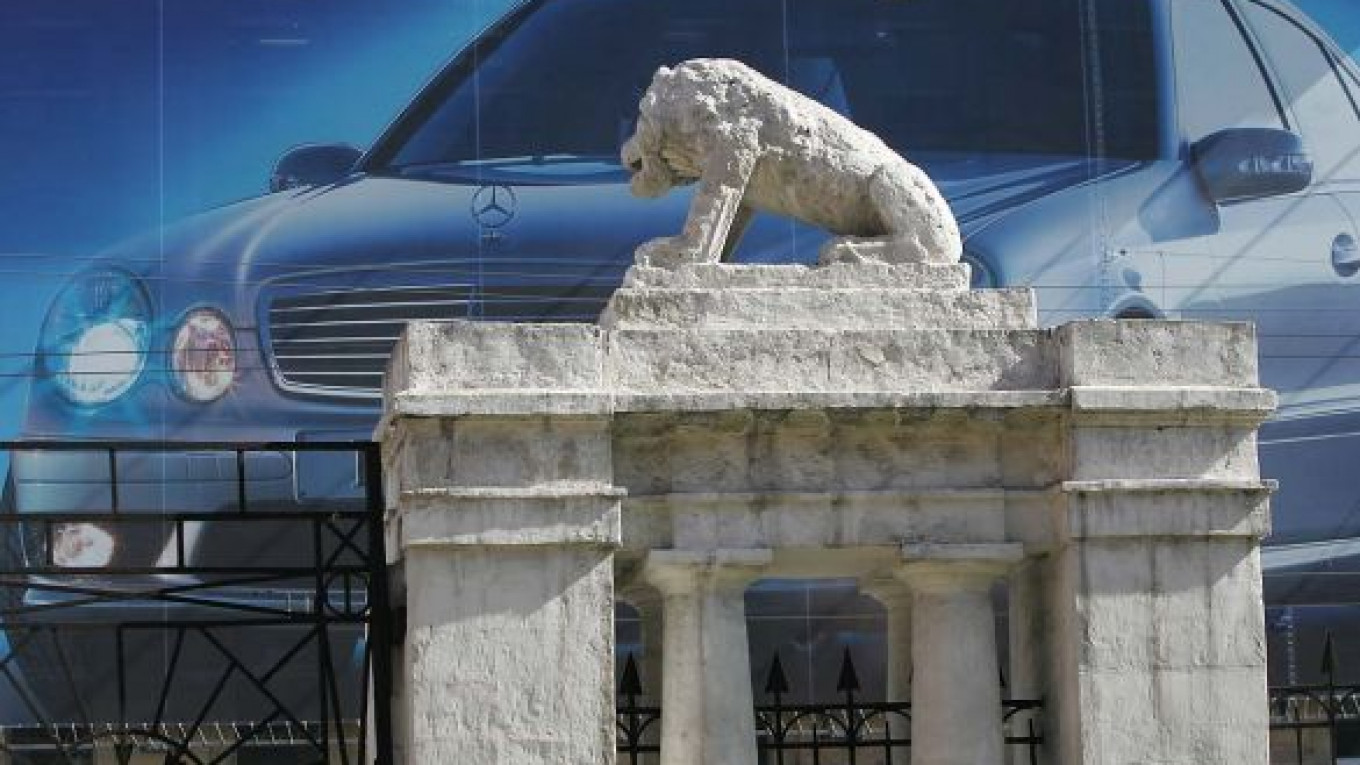Authorities in St. Petersburg have told advertising agencies to remove German goods ads from the city's main streets during the celebrations marking 70 years since the end of the Nazi's Siege of Leningrad during World War II, a news report said.
Several outdoor advertising agencies said the city's advertising regulator ordered them to take down the offending materials not just from main streets, but also from districts where cemeteries are located, Delovoi Peterburg reported Thursday.
The blockade, which lasted almost 900 days and cost the lives of about 800,000 citizens, was breached on Jan. 18, 1944, before being lifted on Jan. 27, 1944. The city celebrates these two dates each year.
The decision to remove German brands' advertisements may have been taken to avoid upsetting veterans and other survivors of the blockade, though the advertisements in question have no link to Nazism.
City Hall denied involvement in sending out the order and called it a provocation, NTV television channel reported.
Volgo-Balt Media said the regulator ordered it to get rid of five bus stop advertisements that promote its client Media Markt, an electrical goods retailer, the report said.
The regulator's reported decree has been criticized by other agencies and German goods retailers.
"In any matter, it is possible to reach the point of absurdity, but in my view, to remove advertisements just because they promote a German brand is stupidity," said Igor Sedov, the director of Aksel Group, which is a BMW and Volkswagen dealer.
"A lot of German firms operate in Russia today; young firms that have no connection with the War," said Dr. Gabriele Kötschau, chairwoman of the Hamburg Chamber of Commerce in St. Petersburg. "I think it is wrong punish them by taking down outdoor advertisements on these dates that are important for 'Leningraders'."
In December, St. Petersburg authorities managed to vex the city's residents with one of their plans for the festivities.
A proposal to stage a reenactment of events from the siege was met with howls of derision by bloggers, who felt that turning a tragedy into a form of entertainment was an insult to both the people who survived the blockade and those who perished during it.
"What is there to reconstruct? Collecting water from the River Neva in buckets? Carrying corpses on sleds?" Vkontakte user Asya Spirina commented, Fontanka.ru reported.
Contact the author at m.lammey@imedia.ru
A Message from The Moscow Times:
Dear readers,
We are facing unprecedented challenges. Russia's Prosecutor General's Office has designated The Moscow Times as an "undesirable" organization, criminalizing our work and putting our staff at risk of prosecution. This follows our earlier unjust labeling as a "foreign agent."
These actions are direct attempts to silence independent journalism in Russia. The authorities claim our work "discredits the decisions of the Russian leadership." We see things differently: we strive to provide accurate, unbiased reporting on Russia.
We, the journalists of The Moscow Times, refuse to be silenced. But to continue our work, we need your help.
Your support, no matter how small, makes a world of difference. If you can, please support us monthly starting from just $2. It's quick to set up, and every contribution makes a significant impact.
By supporting The Moscow Times, you're defending open, independent journalism in the face of repression. Thank you for standing with us.
Remind me later.






